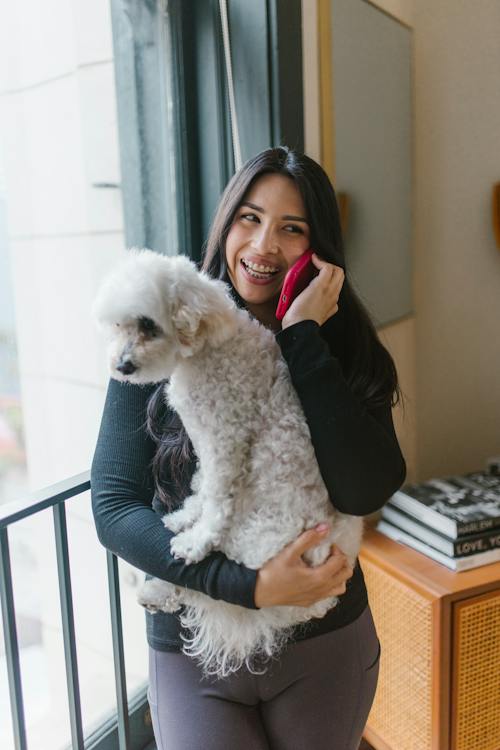For a lot of people, a pet dog is not just a dog. It’s a special member of the family that brings fun, loyalty, and companionship to our lives. You may have spent years with a dog and it has become a part of your everyday life, cheering you up, and bringing you a sense purpose. You may have been through a lot in your life and that pet has stayed with you through thick and thin. You may have been protected by your dog when you most needed it and made you feel loved whenever you feel lonely and alone. So when that beloved pet dog dies, it can be very painful and devastating, even if you know a loss is an inevitable part of owning a pet.
Other people may not understand your pain, but the grief you’re feeling is completely natural and normal. The level of grief during a loss of pet varies from owner to owner due to a lot of factors, like age and personality, the age of the pet, circumstances of death, and the significance of the pet to the owner. However painful it is, remember that grief is something you shouldn’t be ashamed of. Here are seven tips on how to cope up, help yourself and others, and move on from this difficult time:
1. Take time to grieve
There is no need to feel rushed to get over grief and sorrow. You lost a beloved pet – the feeling is like losing a human friend or a family member. It’s not overreacting. Don’t hide your feelings and build a strong façade when you are not really fine. Let yourself feel whatever you feel without judgment or embarrassment. Let yourself cry and let it all out. If you’re still not ready to remove your pet’s dish in the kitchen and to clean that muddy paw prints at the window, leave them there. Let time heal you and you can let go when you’re ready. If you have questions and doubts about how your pet died, consult your veterinarian for answers so you can have closure and move forward. Address any feelings of guilt and burden for the death of your pet, but don’t let it weigh yourself down. Allow yourself to laugh and find joyful moments – remember, your dog loves to see you happy.
2. Talk about it
If your sorrow is too powerful to handle alone, surround yourself with family or friends who experience the same feelings. Keep yourself away from people who devalue your loss and avoid arguments with them – it would just make you feel worse. Some people won’t understand because they may not have a pet or they never had a loving and companionship experience with a pet. If you have family or friends who love pets, they’ll understand you. Find someone whom you can be confident enough to talk to about how the pet meant to you and how much you miss it. Dealing with your feelings with another person who understands you is one of the best ways to move forward and learn how to handle your grief. If none of your family or close friends can give support, seek out to support groups for people who have lost their pets, a local dog club, or your church. You can also ask a local hospital or pet trainers for grief counseling.
3. Tell the truth to your children
Some parents fear that their children won’t handle the news of the death of their beloved household pet. You are the best person who knows what your children can or cannot understand, but you don’t want to underestimate them – you may even have an opportunity to teach them and correct their misconceptions about death. Give them closure, too. Don’t make up lies like “The dog just went away,” or “He/she didn’t want to stay here anymore so he/she moved to a new family.” These will make them wait for their pet to come home again, only to get sad disappointed when that never happens, or even get angry with the dog. Make it clear to them what happened to the pet and that it will not come back, but assure them that your dog is in a peaceful and happy place wherever it is. Allow them to talk about their sadness, and don’t try to hide your grief from them. It will be reassuring for them to find that you understand their feelings. Discuss the issue with your family so you can work through your emotions together. Give your children a chance to deal with their pain in any healthy way, like drawing the pet and displaying it on your wall, or by releasing a balloon to the sky.
4. Consider holding a funeral ceremony
Rituals can help to heal. Holding a funeral can help you and your family to openly express your feelings, celebrate the pet’s life and bid a final farewell. If it feels right do it, and don’t think of what other people would say. It can be very therapeutic and it can help you move on from your pet’s death. Of course, it doesn’t need to be as elaborate as a human funeral, but just set a time and place to do it with your family or friends. The remains of your pet can be buried in your own backyard. But if it’s not possible, you may have it cremated and it’s your choice whether to keep or release the pet’s ashes.
5. Create or keep remembrance of your dog
It would hurt for a while, but one day, you will remember your pet and no more pain will come creeping in – just happy memories. Keep photos and videos of your dog, compile a photo album or scrapbook, write a poem about it on your journal, write about your fondest stories with your pet on your blog, or plant a tree in memory of your pet. Do something or create something concrete that you can revisit to remember your dog; this can help you to move on eventually.
6. Understand that your other pets would grieve too
If you own multiple pets, you may notice that some of them can act strangely during the absence of their companion and friend. Humans are not the only ones who grieve when a pet dies – your other pets grieve too. The pets you have must have bonded a lot and they have their own unique relationship with one another. Plus, they notice every change in the household, so they would surely realize if the other is gone. Owners should take into consideration the remaining pets as well. Give them extra love and attention to fill the void that was left by their animal companion. You would also find that this eases you as well, and spending time with your remaining pets can help you go through your own grief more quickly.
7. Don’t get a new pet just yet
Some people, especially those with no other pets, would feel the need to get a new pet to replace the one who died. However, finding a replacement as a distraction from grief would not be a good idea and it makes the grieving process worse. If emotions are left unresolved, you may find yourself resenting your new pet for not being like your old one. You may find yourself making unfair comparisons and expectations from your new pet, wishing your new pet would behave as your old one did. Your children might feel that spending time with the new pet would be like a betrayal of the old pet. It’s also not a good idea to find a lookalike pet because you’ll most likely compare it all the more with the pet that was gone. Allow yourself and your family to move on first from the death of your old pet before getting and taking care of a new one. The new pet should be loved and accepted for its own qualities, and it should be taken care of to develop a personality of its own – not to fill the void that was left by your old pet.


